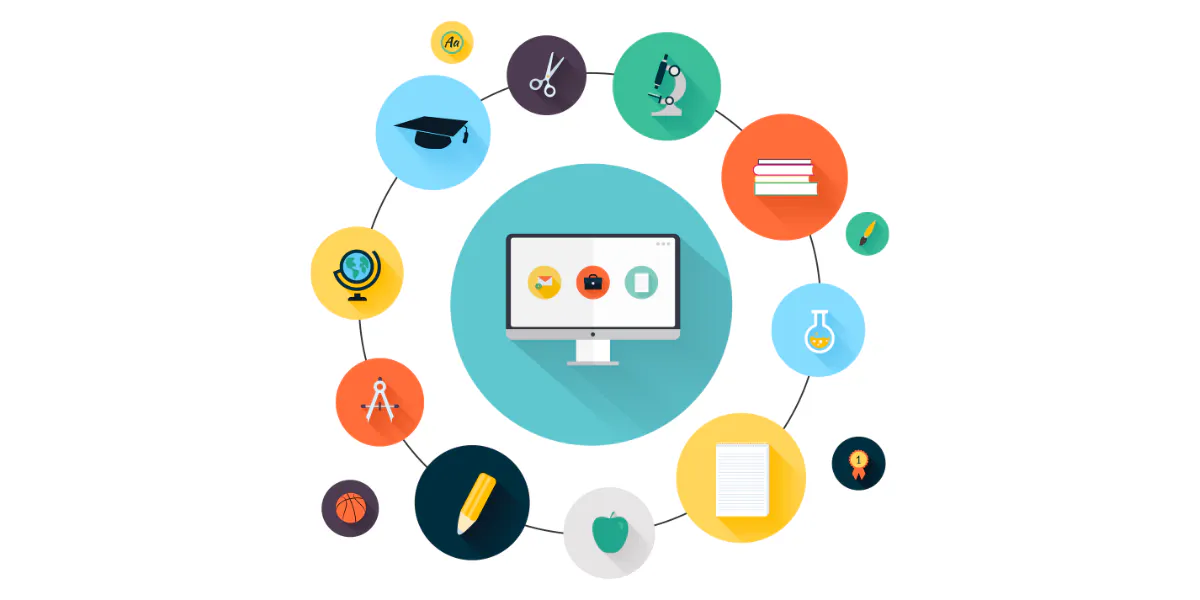In today’s rapidly evolving educational landscape, the traditional methods of teaching and learning are being transformed by technological advancements. With the integration of digital tools and platforms, educators are faced with the challenge of adapting to new paradigms while ensuring that learning remains effective and engaging. At the forefront of this transformation is Learning Management System Software, which plays a pivotal role in future-proofing education for the modern era.
Evolution of Learning Environments
Education has come a long way from traditional classroom settings, where learning was confined to physical spaces and paper-based resources. With the advent of the internet and digital technologies free lms , there has been a gradual shift towards digital learning environments. This transition has accelerated in recent years, driven by the need for flexibility, accessibility, and personalized learning experiences.
Understanding LMS Software
LMS software serves as a centralized platform for managing and delivering educational content, facilitating communication between educators and students, and tracking progress and performance. It provides a wide range of features and functionalities, including course creation and management, assessment tools, collaboration spaces, and analytics dashboards.
Challenges in Modern Learning Environments
Despite the benefits of digital learning, educators face several challenges in meeting the diverse needs of students in modern classrooms. Technological advancements often outpace the development of educational resources, leading to a gap between available tools and pedagogical practices. Additionally, catering to different learning styles and maintaining student engagement can be daunting tasks for educators.
The Role of Learning Management System Software in Addressing Challenges
Learning Management System Software offers solutions to many of the challenges faced by educators in modern learning environments. Its flexibility and accessibility enable students to learn at their own pace and convenience, regardless of geographical location or time constraints. Moreover, Learning Management System Software platforms can provide personalized learning experiences tailored to individual student needs, thereby enhancing engagement and motivation.
Future Trends in LMS Development

The future of LMS software lies in its ability to adapt to emerging technologies and pedagogical trends. Integration of artificial intelligence (AI) and machine learning algorithms can enable LMS platforms to deliver more personalized and adaptive learning experiences. Virtual and augmented reality technologies have the potential to transform how students interact with educational content, making learning more immersive and interactive.
Implementing LMS Software Effectively
To reap the full benefits of Learning Management System Software, educators must be provided with adequate training and support to effectively integrate it into their teaching practices. Furthermore, Learning Management System Software platforms should be customizable to accommodate the unique needs and preferences of different educational contexts. Continuous evaluation and improvement are essential to ensure that Learning Management System Software remains responsive to evolving pedagogical requirements.
Case Studies
Several educational institutions have successfully implemented Learning Management System Software to enhance student learning outcomes. By leveraging the capabilities of these platforms, educators have been able to create engaging and interactive learning experiences that cater to the diverse needs of students. Moreover, data-driven insights provided by LMS analytics have enabled schools to identify areas for improvement and implement targeted interventions.
Benefits of Future-Proofing Education with LMS Software
Future-proofing education with LMS software offers numerous benefits for students, educators, and educational institutions alike. By embracing digital learning technologies, schools can improve student engagement, enhance learning outcomes, and prepare students for success in an increasingly digital world. Moreover, LMS software provides educators with valuable tools and resources to support their teaching practices and enhance collaboration among students.
Extending Learning Beyond the Classroom
With LMS software, education becomes more flexible, allowing students to access learning materials anytime, anywhere. This extends learning beyond the confines of the traditional classroom, enabling students to engage with educational content at their own pace and convenience. Whether it’s reviewing lecture recordings, completing assignments, or participating in online discussions, LMS platforms empower students to take control of their learning journey.
Fostering Collaboration and Communication
Collaboration is a vital skill in today’s interconnected world, and LMS software facilitates collaboration among students and educators. Through features such as discussion forums, group projects, and shared documents, students can collaborate effectively, exchanging ideas and perspectives with their peers. Likewise, educators can communicate seamlessly with students, providing feedback, guidance, and support in real-time.
Empowering Differentiated Instruction
Every student is unique, with individual strengths, weaknesses, and learning preferences. LMS software enables differentiated instruction, allowing educators to tailor learning experiences to meet the diverse needs of students. Whether it’s providing alternative assessments, offering additional resources, or adapting instructional strategies, LMS platforms empower educators to accommodate a variety of learning styles and abilities.
Promoting Lifelong Learning

In today’s knowledge-based economy, learning doesn’t stop after graduation—it’s a lifelong journey. LMS software promotes lifelong learning by providing access to a wealth of educational resources and opportunities beyond the formal classroom setting. Whether it’s pursuing professional development courses, acquiring new skills, or staying updated on industry trends, LMS platforms empower individuals to continue learning and growing throughout their lives.
Enhancing Parental Engagement
Parents play a crucial role in supporting their child’s education, and Learning Management System Software can facilitate greater parental engagement. By providing parents with access to their child’s learning materials, assignments, and progress reports, LMS platforms enable parents to stay informed and involved in their child’s academic journey. This fosters a collaborative partnership between educators, students, and parents, ensuring a holistic approach to education.
Supporting Special Education Needs
Students with special education needs require personalized support and accommodations to succeed academically. LMS software can support these students by providing accessibility features, adaptive learning tools, and individualized learning plans. Whether it’s providing audiovisual materials for students with visual impairments or offering interactive exercises for students with learning disabilities, Learning Management System Software platforms can help create inclusive learning environments where every student can thrive.
Adapting to Technological Advancements
Technology is constantly evolving, and education must keep pace with these advancements. LMS software allows educational institutions to adapt quickly to emerging technologies, ensuring that students are prepared for the digital future. Whether it’s integrating new educational apps, incorporating virtual reality simulations, or harnessing the power of artificial intelligence, LMS platforms enable schools to embrace innovation and stay ahead of the curve.
Conclusion
In conclusion, LMS software plays a crucial role in future-proofing education by providing educators and students with the tools and resources they need to thrive in modern learning environments. By embracing digital technologies and leveraging the capabilities of Learning Management System Software platforms, schools can create dynamic and engaging learning experiences that prepare students for success in the 21st century. Learning Management System Software plays a multifaceted role in future-proofing education, offering a wide range of benefits for students, educators, and educational institutions. From extending learning beyond the classroom to fostering collaboration, promoting lifelong learning, and supporting diverse needs, LMS platforms empower stakeholders to navigate the challenges and opportunities of modern education effectively.


